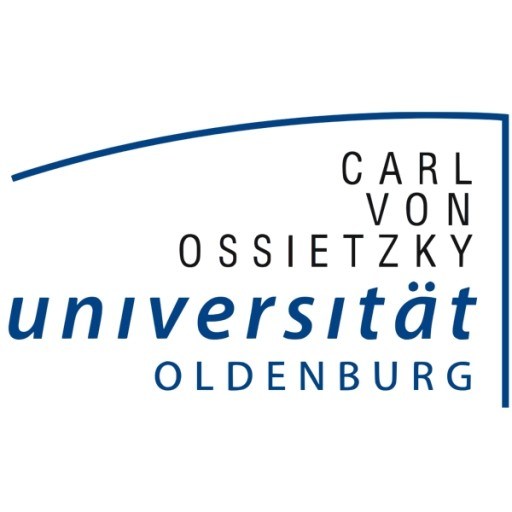Photos of university / #ntnu
The Bachelor's degree in Neuroscience at the Norwegian University of Science and Technology (NTNU) offers students a comprehensive introduction to the complex and fascinating workings of the human brain and nervous system. This interdisciplinary programme combines biology, psychology, medicine, and technology to provide a broad understanding of how neural processes influence behavior, cognition, and health. Throughout the course of study, students will explore fundamental topics such as neuroanatomy, neurophysiology, neurochemistry, and neurobiology, gaining insights into both healthy neural functioning and various neurological disorders. The programme emphasizes scientific methods and critical thinking, equipping students with practical skills in laboratory techniques, data analysis, and research design that are essential for pursuing careers in neuroscience research, healthcare, or related fields.
In addition to core scientific disciplines, students will have opportunities to learn about cognitive neuroscience, neuropsychology, and neuroinformatics, which are increasingly important in understanding brain function in relation to mental processes and neurological diseases. The programme also fosters an understanding of the ethical considerations involved in neuroscience research and clinical applications. Students are encouraged to engage in active learning through laboratory work, projects, and seminars, fostering teamwork and communication skills vital for interdisciplinary collaboration.
The Bachelor's in Neuroscience at NTNU prepares graduates for entry-level positions in research, healthcare, or industry, or as a stepping stone towards further specialization in master's or doctoral programmes. NTNU’s strong links to medical institutions, research centers, and industry partners provide students with valuable internship opportunities and real-world experience. With a curriculum designed to reflect the latest developments in neuroscience, this programme aims to cultivate well-rounded scientists capable of contributing to advancements in understanding the human brain and improving neurological health worldwide.
The Master's Programme in Neuroscience at the Norwegian University of Science and Technology (NTNU) offers a comprehensive and in-depth education in the multidisciplinary field of brain and nervous system studies. This program is designed to provide students with a solid foundation in neuroscientific theories, research methods, and practical skills necessary to understand the complex functions of the nervous system and its relevance to health and disease. The programme covers a wide range of topics, including neurobiology, neuroanatomy, neurophysiology, neuropharmacology, and cognitive neuroscience. Students will explore the biological mechanisms underlying brain functions such as perception, cognition, learning, and memory, alongside the pathophysiology of neurological disorders like Alzheimer’s disease, Parkinson’s disease, multiple sclerosis, and psychiatric conditions.
Throughout the programme, students will engage in both theoretical coursework and practical laboratory work, fostering skills in experimental design, data analysis, and scientific communication. The curriculum emphasizes the integration of molecular, cellular, systems, and behavioral approaches to neuroscience, encouraging students to develop a holistic understanding of brain function. A key component of the programme involves independent research projects, where students can apply their learning to real-world scientific problems, often collaborating with leading researchers and laboratories at NTNU.
The programme also aims to prepare students for careers in academia, healthcare, industry, or research institutions. Students will gain valuable experience in scientific writing, presentation, and teamwork, which are essential skills for advanced careers in neuroscience or related fields. The teaching combines lectures, seminars, laboratory exercises, and project work, creating an active and engaging learning environment. Graduates of this programme will leave equipped with the knowledge and skills necessary to contribute to scientific discovery and technological advances in neuroscience, to work in clinical or research settings, or to pursue further doctoral studies. Overall, the NTNU Master’s Programme in Neuroscience offers a unique opportunity to explore one of the most rapidly evolving and interdisciplinary fields of modern science.
Financing studies at the Norwegian University of Science and Technology (NTNU) for the Neuroscience program involves a combination of tuition fees, scholarships, and financial support options. As Norway offers free higher education to all students regardless of nationality for public universities, international students pursuing a master's degree in Neuroscience do not need to pay tuition fees. This significantly reduces the financial barrier for students from abroad who wish to study at NTNU. However, students are responsible for their living expenses, which include accommodation, food, study materials, health insurance, and personal expenses. The average cost of living in Trondheim, where NTNU is located, is estimated to be between NOK 10,000 and NOK 12,000 per month.
For Norwegian and EU/EEA students, funding is primarily through government grants, student loans, and grants provided by the Norwegian State Educational Loan Fund (Lånekassen). These financial supports are available to cover living costs and are awarded based on academic progress and financial need. Norwegian students and those from EU/EEA countries are eligible for these loans and grants, which can be used to support their studies throughout the program duration.
International students from outside the EU/EEA can apply for various scholarships offered by NTNU and other Norwegian organizations. NTNU offers merit-based scholarships for excellent students from abroad, which can cover partial or full tuition fees, but since tuition is free for this program, such scholarships may instead focus on living costs or research grants. Additionally, students are encouraged to seek external funding sources such as their home country scholarships, Erasmus+ programs if applicable, or private foundations that support international education.
Students enrolled in the Neuroscience program have access to research assistantships, project-based employment, and part-time jobs, which can help offset living expenses. These opportunities often come with stipends or wages that provide additional financial support. Moreover, students are advised to carefully plan their finances beforehand and consider health insurance coverage, especially for international students, to ensure access to healthcare services during their studies.
Overall, the financing of studies at NTNU for Neuroscience depends heavily on the student’s nationality and eligibility for various grants and scholarships, but the Norwegian education system provides significant support to reduce the financial burden for students, especially through the absence of tuition fees and various living expense support options.
The Master’s Degree Programme in Neuroscience at the Norwegian University of Science and Technology (NTNU) is a comprehensive program designed to provide students with an in-depth understanding of the structure and function of the nervous system. The program aims to equip students with both theoretical knowledge and practical skills necessary for careers in research, healthcare, and industry related to neuroscience. Students will explore various aspects of neuroscience, including molecular, cellular, systems, cognitive, and behavioral neuroscience, allowing for a multidisciplinary approach to understanding the brain and nervous system.
Throughout the program, students engage in advanced coursework that covers neurobiology, neuroanatomy, neurophysiology, neuropharmacology, and neuroinformatics. The curriculum includes laboratory work, where students gain hands-on experience with modern techniques such as electrophysiology, neuroimaging, and data analysis. There is also a focus on computational models and data science applications in neuroscience, reflecting the growing importance of interdisciplinary methods in the field.
The program emphasizes research-based learning, with students participating in ongoing research projects under the supervision of faculty members. Opportunities for thesis work are available in various research groups, allowing students to specialize further in areas such as neurodegenerative diseases, neurodevelopment, or cognitive neuroscience. Collaboration with healthcare providers and industry partners is also encouraged to enhance practical understanding and career readiness.
NTNU’s Neuroscience program benefits from state-of-the-art facilities, research centers, and a vibrant academic community. The university’s location in Trondheim provides access to cutting-edge research environments, networking opportunities, and potential for international cooperation. Graduates of the program are well-prepared for doctoral study, research positions, or roles within clinical or pharmaceutical industries.
The program typically spans two years and is offered in English to attract international students. Admission requirements include a relevant Bachelor’s degree in biology, medicine, psychology, or a related discipline, along with proof of English language proficiency. Graduates who complete the MSc in Neuroscience will have developed a robust scientific foundation, technical competencies, and research experience, enabling them to contribute to advancements in understanding and treating nervous system disorders or to pursue further academic training.
In summary, NTNU’s MSc in Neuroscience offers an interdisciplinary, research-oriented education in neuroscience, providing students with the necessary tools to understand the complexities of the nervous system and to apply this knowledge in various professional contexts, including research, healthcare, and industry.










